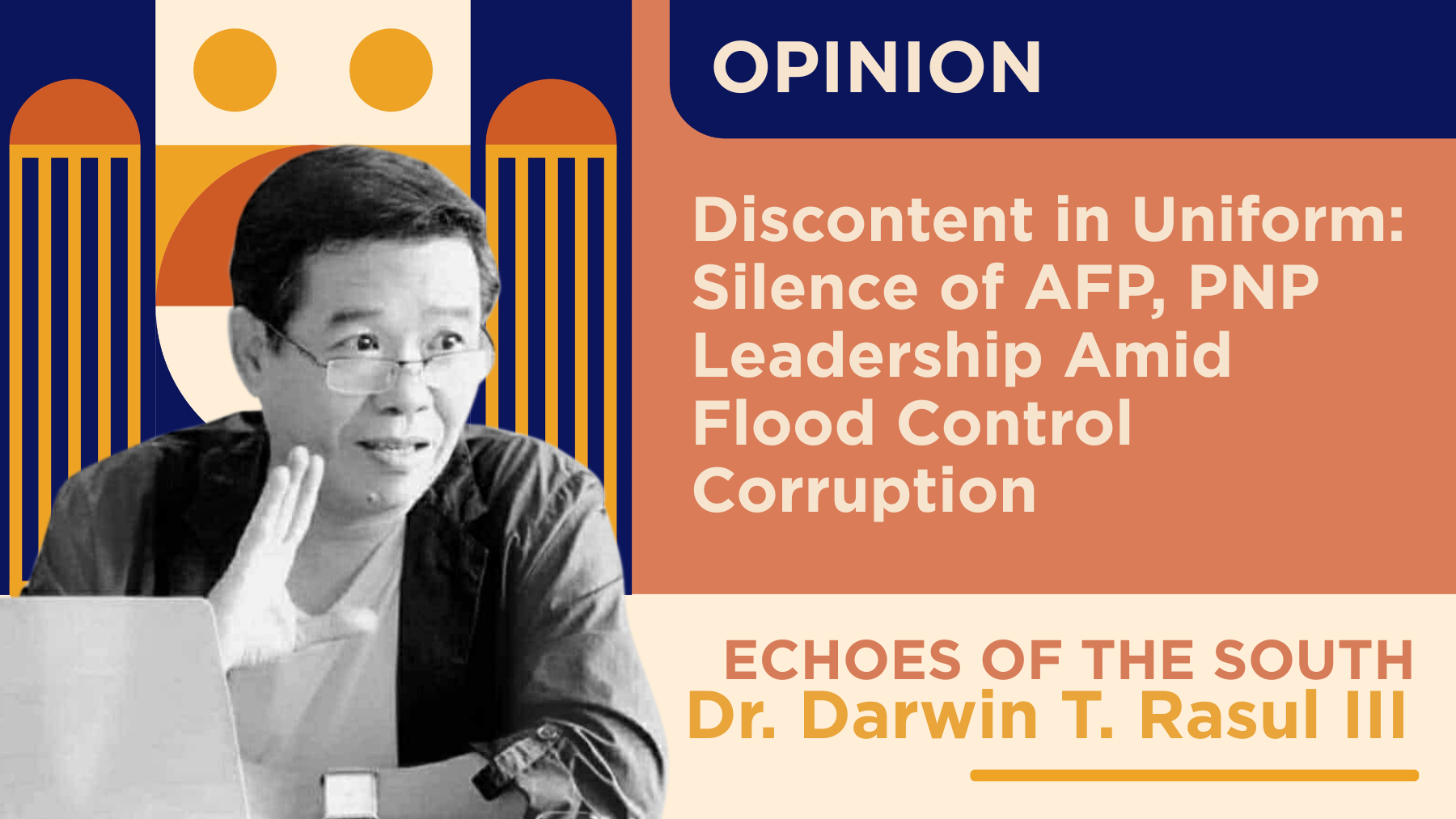The frustration within the ranks of the Armed Forces of the Philippines (AFP) and the Philippine National Police (PNP) is palpable. Officers, both active and retired, quietly echo the outrage of the public over the misuse of billions in government funds, particularly in flood control projects. What was meant to shield communities from calamities has instead become, in the eyes of many, another channel for corruption. This growing anger coincides with the mounting street protests that are set to culminate this Sunday at EDSA, reviving memories of people power but now fueled by resentment against the squandering of public resources.
The facts are damning. According to Department of Budget and Management (DBM) records, nearly ₱545 billion has been released for flood control projects from 2022 to 2024. Yet vast swathes of Metro Manila, Bulacan, Pampanga, and other vulnerable provinces continue to drown after heavy rains. Allegations raised in congressional hearings and by whistleblowers suggest that lawmakers and contractors siphoned off 25–30% commissions as the price of securing projects. In some cases, Commission on Audit (COA) reports have flagged incomplete, delayed, or poorly executed flood control works. For communities long submerged in both floodwaters and neglect, the anger has reached a boiling point.
The AFP and PNP cannot remain indifferent. Many officers and men see in this scandal a betrayal of the very people they are sworn to serve. They risk lives in disaster response, only to find out that resources intended to prevent those disasters may have been stolen. Retired generals have been especially outspoken, warning that the credibility of the uniform erodes each time corruption is ignored or tolerated at the highest levels of government. Within barracks and camps, conversations are said to be tense, if not outright embittered, as rank-and-file personnel question why the sacrifices of soldiers and policemen are constantly undermined by the greed of politicians.
Amid this atmosphere, AFP Chief of Staff Gen. Romeo Brawner Jr. has consistently pledged loyalty to President Ferdinand Marcos Jr. His message is clear: the AFP will not waver in its constitutional mandate and will continue modernization efforts with the administration’s support. In speeches and interviews, he has projected calm and stability, reminding the public that the military is professional and apolitical.
Yet this unwavering loyalty has drawn criticism. Many accuse Brawner of being blind, if not willfully silent, on the very corruption scandal now shaking public trust. While he denounces bribery among soldiers, he has avoided direct comment on the alleged involvement of congressmen and government officials in the flood control mess. By refusing to acknowledge the issue, Brawner appears to many as shielding Malacañang and Congress, thereby eroding his moral standing as the military’s top officer.
This silence has consequences. Soldiers in the field ask how they can be expected to live by “integrity and honor” while their civilian leaders sidestep accountability in the face of massive corruption. To them, Brawner’s selective outrage—firm against petty wrongdoing within the ranks but muted on grand-scale plunder by politicians—creates a dangerous disconnect. The perception is growing that the AFP leadership is more committed to protecting the President than to defending the people’s interests.
Meanwhile, the PNP faces its own crisis of confidence. With communities demanding protection not only from crime but also from natural disasters, police officers are often on the frontlines of rescue operations. Yet they too bear witness to the futility of responding to floods that should have been mitigated by infrastructure projects. Like the soldiers, many policemen quietly voice resentment that funds that could have saved lives and safeguarded homes may instead have lined the pockets of corrupt officials.
This Sunday’s protests at EDSA and Luneta are expected to be massive, fueled by anger at government theft and neglect. Organizers frame the demonstrations not just as political expression but as moral reckoning, demanding accountability and justice. The AFP and PNP are caught in a delicate balance: they are tasked to secure these rallies, but they also carry within their own ranks the very frustrations and doubts that animate the crowds. How they act, or fail to act, will define their credibility in the eyes of the people. We can only hope that they will be in EDSA this Sunday to secure the people and not to disperse them.
Looking forward, the danger is clear. If institutions such as the AFP and PNP continue to close ranks behind leaders who ignore or excuse corruption, the gap between the government and its citizens will only widen. General Brawner’s loyalty to the President may shield Malacañang in the short term, but it risks compromising the very moral authority the military must uphold. Unless there is decisive action—transparent audits, prosecutions, and removal of the guilty—the discontent brewing in the camps and in the streets could converge into a deeper crisis of governance.
And so the question lingers as EDSA looms: will soldiers and policemen ultimately stand by a chief who clings to loyalty at the expense of truth, or will they heed the rising call of the people for accountability whose trust and safety they vowed to defend? The answer may determine whether the coming days mark another turning point in Philippine history.

